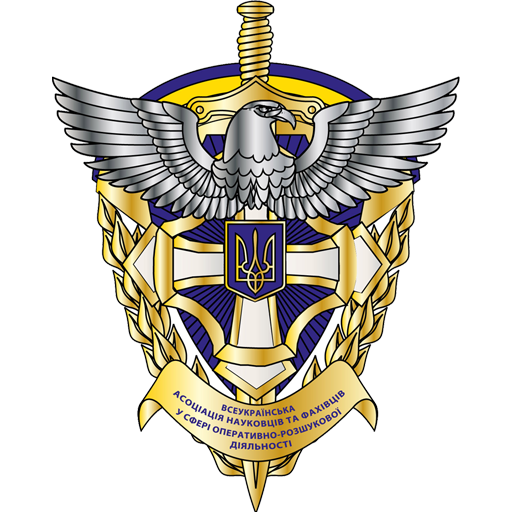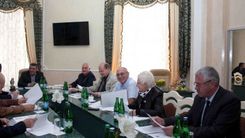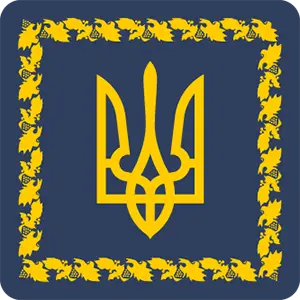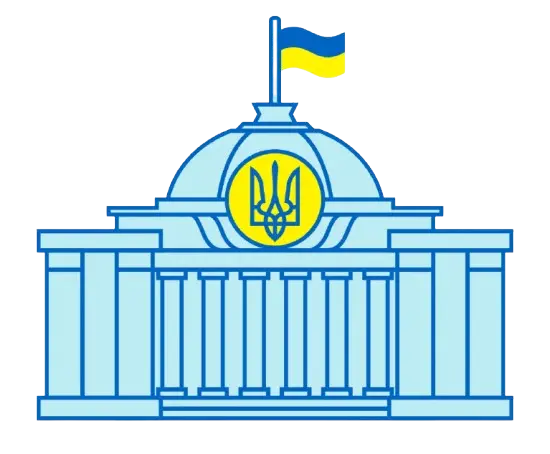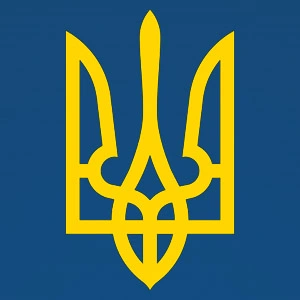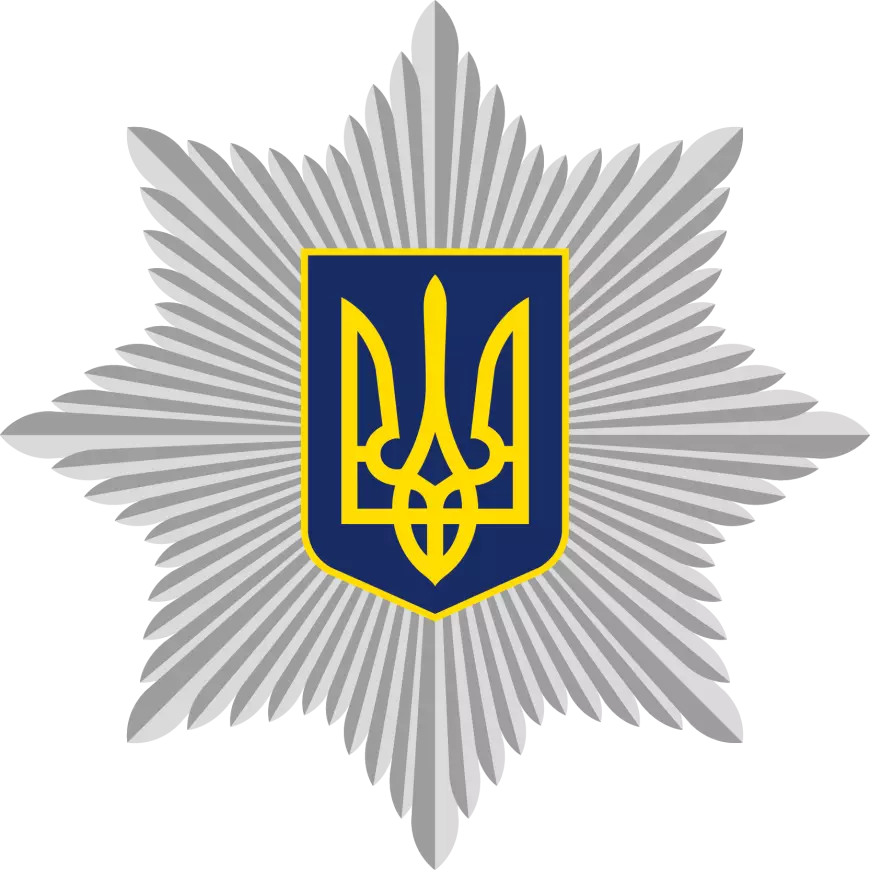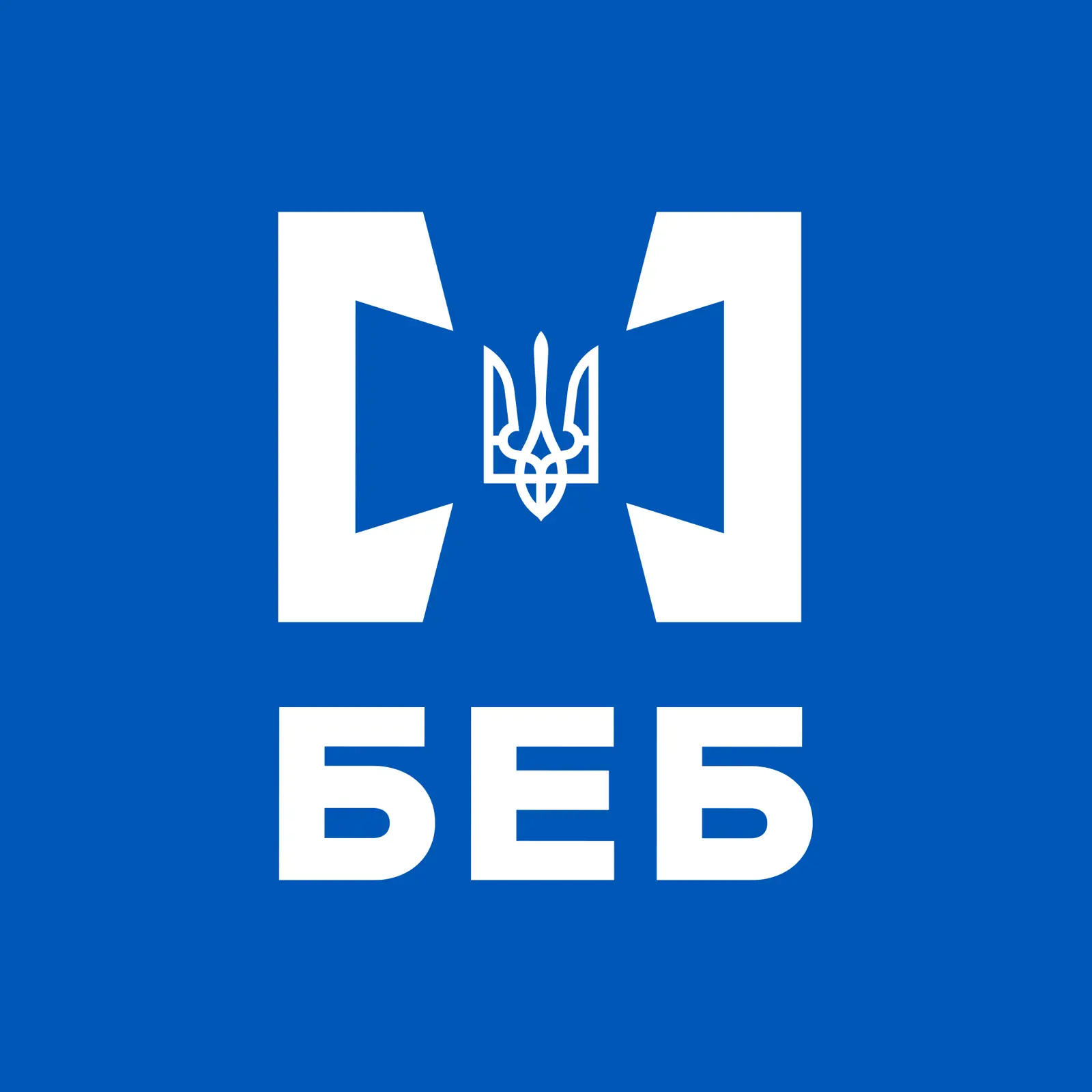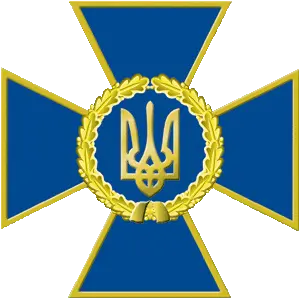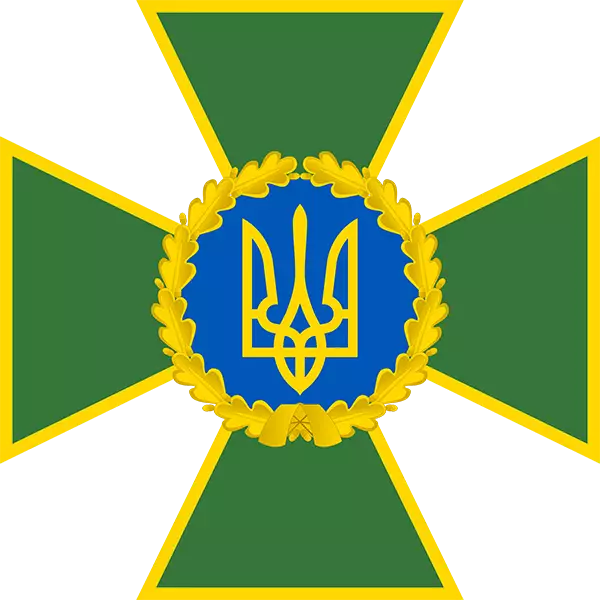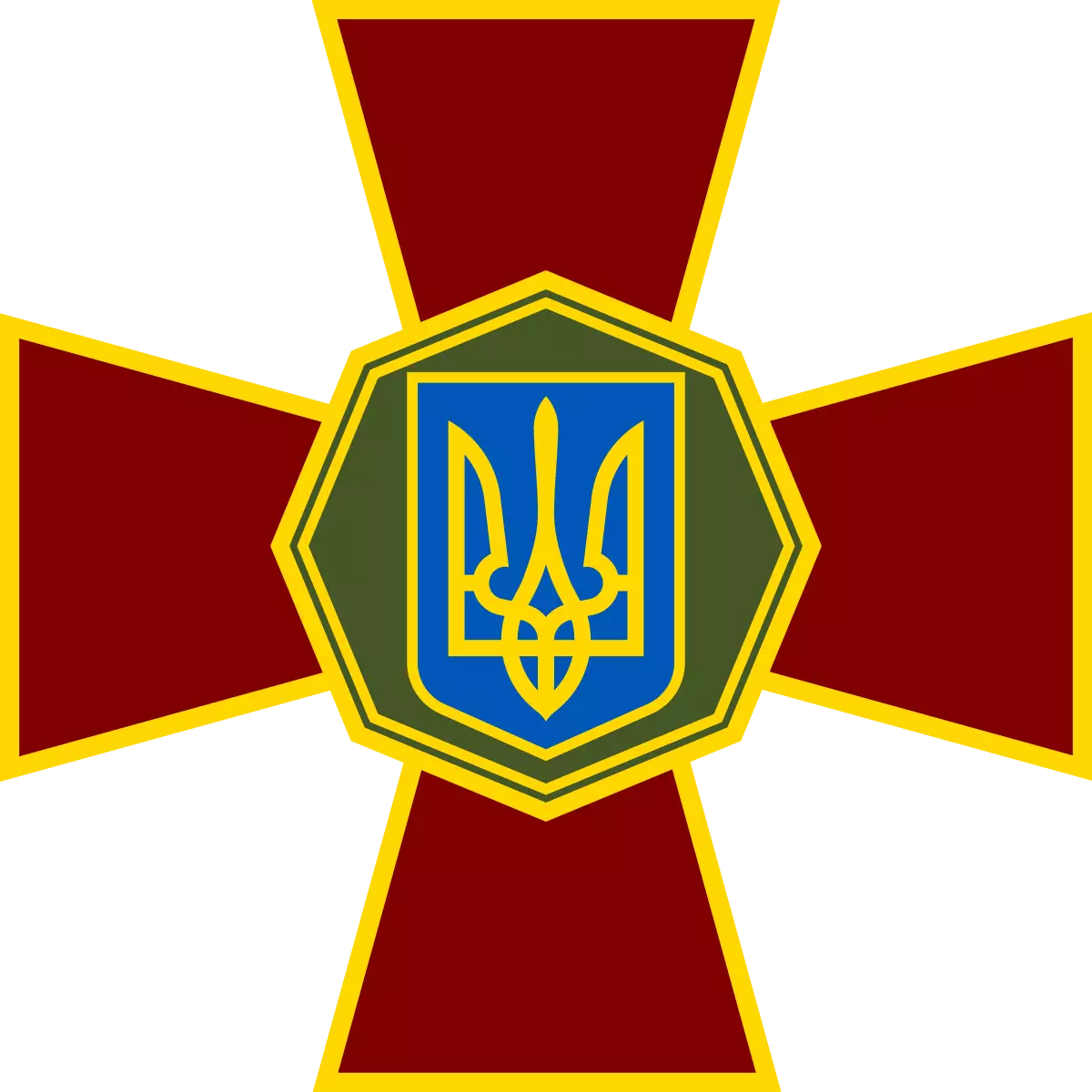All news
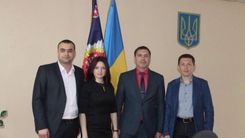
REPRESENTATIVES OF THE ASSOCIATION PARTICIPATED IN THE ALL-UKRAINIAN SCIENTIFIC AND PRACTICAL CONFERENCE IN LVIV
Members of the Association took part in the All-Ukrainian Scientific and Practical Conference “Economic Security of Ukraine: Status, Problems and Prospects”.
The conference, which was held at the Lviv State University of Internal Affairs, was attended by scientists from leading higher educational institutions from Lviv, Kyiv, Odessa, and Ternopil.
“The problem of economic security in our country, unfortunately, does not cease to be relevant. We understand that currently the issue of our country’s rating as a state with a high level of corruption, a high level of the shadow economy and other indicators that cause concern both among the citizens of Ukraine and the world community is acute,” said the first vice-rector of the Lviv State Internal Affairs Department, candidate of legal sciences, associate professor Roman Blaguta in his opening remarks.
The reports of the scientists present touched on many aspects of the economy, security and development prospects. Thus, the professor of the Department of Administrative Activities of the Internal Affairs Department and Economic Security of the State Internal Affairs Department, candidate of legal sciences, associate professor, police lieutenant colonel Maksym Kornienko, presented a report to the attendees on the topic “Controversial Issues of Criminal Liability for Falsification of Financial Documents” during the plenary session.
Head of the Department of Administrative Activities of the Internal Affairs Department and Economic Security of the Department of Internal Affairs, Candidate of Law, Associate Professor, Police Lieutenant Colonel Artem Shelekhov, delivered a report "Regarding the subjects of counteraction to the investigation of fraud."
Following the conference, joint proposals will be sent to state authorities and the Ministry of Internal Affairs of Ukraine in order to develop a system of effective measures to ensure the state security of Ukraine, in particular economic security.
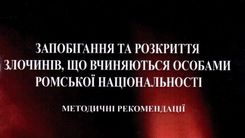
COMBATING ETHNIC CRIME: ASSOCIATION PUBLICATION
Published methodological development of Doctor of Law, Professor Sahakyan M.B.
“Prevention and detection of crimes committed by persons of Roma nationality”: methodological recommendations / M. B. Sahakyan. – Odesa: ODUVS, 2016. – 44 p.
The methodological recommendations consider issues related to global problems of ethnic crime; analyze the history and ethnography of the Roma; provide a criminological characteristic of ethnic criminal groups of persons of Roma nationality. The specifics of the prevention and detection of crimes committed by persons of Roma nationality are described in detail, as well as the features of the use of undercover workers in combating crimes committed by persons of Roma nationality.
The methodological recommendations will be useful for employees of operational units of the National Police, cadets and teachers of educational institutions of the Ministry of Internal Affairs of Ukraine.
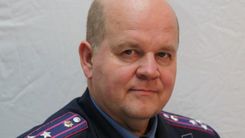
CONGRATULATIONS!!!!!!
By the decision of the Yaroslav Mudryi Award Committee in the nomination “For outstanding achievements in scientific and research activities in law”, the laureate of the 2015 Prize was recognized as the member of the Board of the Association
ORLOVA
Yuriy Yuriyovich
Doctor of Law, Senior Researcher
The Board of the Association of Scientists and Specialists in the Field of Operational and Investigative Activities sincerely congratulates the laureate, wishes him good health and new scientific achievements!
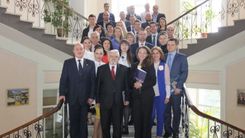
INTERNATIONAL SCIENTIFIC AND PRACTICAL CONFERENCE "PROCEDURAL AND CRIMINAL ASPECTS OF PRE-COURT INVESTIGATION" IN MEMORY OF PROFESSOR V.D. BERNAZ
On April 14, 2016, the Odessa State University of Internal Affairs, with the assistance of the All-Ukrainian Association of Scientists and Specialists in the Field of Operational and Investigative Activities, hosted the International Scientific and Practical Conference “Procedural and Forensic Aspects of Pre-Trial Investigation”, dedicated to the memory of the outstanding scientist – Doctor of Law, Professor, Honored Worker of Science and Technology of Ukraine, Corresponding Member of the National Academy of Legal Sciences of Ukraine Vasyl Dmytrovych Bernaz.
Leading Ukrainian and foreign scientists took part in the conference, including representatives of the All-Ukrainian Association of Scientists and Specialists in the Field of Operational and Investigative Activities, as well as students, postgraduates, adjuncts and doctoral candidates.
The event was opened by the Deputy Chairman of the Association, Candidate of Law, Associate Professor, Police Colonel Serhiy Albul, who offered the attention of those present a presentation dedicated to the life path of Doctor of Law, Professor, Honored Worker of Science and Technology of Ukraine, Corresponding Member of the Academy of Legal Sciences of Ukraine Vasyl Dmytrovych Bernaz, after which the conference participants honored the bright memory of the outstanding Ukrainian scientist with a minute of silence.
Further, Serhiy Albul emphasized the importance of this conference, which is due to the need for scientific support for the fight against crime and the establishment of an effective mechanism for combating offenses, developing recommendations aimed at improving the activities of law enforcement agencies.
“The combination of theory and practice in the fight against crime is becoming quite important in the context of the transformation of criminal elements, the existence of widespread organized crime, its acquisition of a transnational nature, the presence of a high degree of corruption, and active counteraction by interested parties. Crime is increasingly adapting to new conditions, using modern methods of committing crimes, high-tech approaches, and the latest achievements of technical scientific thought. Therefore, the expediency of holding this conference is beyond doubt,” Serhiy Albul noted.
Then the floor was given to the chairman of the Association, Doctor of Law, Professor Oleksandr Korystin, who shared his thoughts on the practical need to improve the criminal process.
In turn, the next speaker, Head of the Department of Criminology of the National University "Odesa Law Academy", Doctor of Law, Professor, Corresponding Member of the National Academy of Legal Sciences of Ukraine Valeriy Tyshchenko, spoke about the technology of identifying and proving the guilt of a suspect in a pre-trial investigation.
This day, reports were also made by Associate Professor of the Department of Criminology, Forensic Medicine and Psychiatry of the KhNUVS, Candidate of Law, Associate Professor Tetyana Pazynych, Professor of the Department of Criminology, Forensic Medicine and Psychiatry of the ODUVS, Doctor of Law, Professor Olena Tsilmak, Strategic Advisor on Combating Corruption of the EU Advisory Mission to Ukraine Clemens Muller, and other scholars.
The conference participants discussed important issues of criminal process and criminology: current problems of improving the criminal process, current problems of criminology at the present stage, the formation of general and individual theories of criminology and criminal process, the possibilities of applying scientific and technical means and information technologies in investigative activities, the use of special knowledge in the investigation of crimes, and the improvement of tactical and methodological recommendations for law enforcement activities.
The attendees were presented with scientific reports on such topics as: “The relevance of reforming criminal procedural legislation and the features of its practical implementation”, “Regarding problematic issues of interaction between pre-trial investigation bodies and operational units”, “On further integration of operational and investigative activities into the criminal justice system”, “Certain issues of compliance with the requirements of the Code of Criminal Procedure of Ukraine when applying temporary access to things and documents”, etc.
Based on the materials of the International Scientific and Practical Conference, a collection of abstracts “Procedural and Forensic Aspects of Pre-Trial Investigation” was published, which highlights the results of scientific research by the participants of this event.
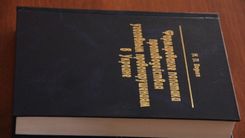
PRESENTATION OF THE MONOGRAPH OF AN OUTSTANDING SCIENTIST – MEMBER OF THE ASSOCIATION
The Odessa State University of Internal Affairs hosted a presentation of a new monograph by an outstanding domestic scientist - Member of the All-Ukrainian Association of Scientists and Specialists in the Field of Operational and Investigative Activities, Leading Researcher of the Research Laboratory on Problematic Issues of Law Enforcement Activities of the Odessa State University of Internal Affairs, Doctor of Law, Professor, Retired Major General of the Police Vodko Mykola Petrovich - “Formation of a Policy for Counteracting Criminal Offenses in Ukraine (Operational and Investigative Aspect).
Opening the event, the Deputy Chairman of the Association, Candidate of Law, Associate Professor Serhiy Albul, noted that in modern conditions, criminal policy is developed as a result of a compromise of the positions of all branches of government and the public regarding the development of specific measures to combat crime. Today, domestic realities require the formation of a qualitatively new policy to combat criminal offenses. In many ways, the scientific developments of modern researchers will contribute to the formation of such policy directions.
The presentation was attended by members of the All-Ukrainian Association of Scientists and Specialists in the Field of Operational and Investigative Activities, the scientific and pedagogical staff of the departments of operational and investigative activities, criminal process, criminology, forensic medicine and psychiatry of the Odessa State University of Internal Affairs.
The guests of honor were the Deputy Head of the Main Directorate of the National Police in the Odessa region, Police General of the Third Rank V.P. Prysyazhnyuk, the Head of the Department of Criminology of the National University "Odessa Law Academy", Doctor of Law, Professor V.V. Tyshchenko, the Head of the Department of Criminal Procedure of the National University "Odesa Law Academy", Doctor of Law, Professor Y.P. Alenin, and representatives of scientific institutions of the Odessa region.
The monograph examines the content and goals of the policy of combating criminal offenses in Ukraine and its component - operational-search policy, the prospects for the formation of the latter in the conditions of the introduction of the new Criminal Procedure Code of Ukraine, taking into account the introduction of European legal standards and norms into law enforcement activities. The author makes proposals for improving the operational-search and criminal-procedural legislation of Ukraine.
During the lively communication, the participants of the event unanimously noted that the monograph by M.P. Vodka will be really useful for the scientific and pedagogical staff, postgraduate students, adjuncts, cadets and students of higher legal educational institutions, employees of state bodies carrying out operational-search and criminal-procedural activities.
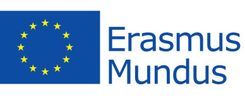
IMPLEMENTATION OF EDUCATIONAL AND SCIENTIFIC PROGRAMS IN POSTGRADUATE STUDIES AND LICENSING
On April 4, 2016, the Secretary of the Board of the Association of Scientists and Specialists in the Field of Operational and Investigative Activities, Ruslan Tarasenko, took part in the training seminar "Implementation of Educational and Scientific Programs in Postgraduate Studies and Licensing", which was organized by the Ministry of Education and Science of Ukraine and the National Erasmus+ Office in Ukraine.
The seminar was attended by Advisor to the Minister of Education and Science Mykhailo Vinnytskyi, Director of the Department of Higher Education Oleg Sharov, Head of the Licensing and Accreditation Department Andriy Shevtsov, Deputy Director of the Department of Certification of Highly Qualified Personnel Olena Voronyuk, member of the National Erasmus+ Office in Ukraine Zhanna Talanova, as well as representatives of higher educational institutions and scientific institutions responsible for postgraduate studies. Odessa State University of Internal Affairs was represented by the Acting Head of Doctoral and Adjunct Studies Doctor of Law, Senior Researcher, Police Major Ruslan Tarasenko.
Advisor to the Minister Mykhailo Vinnytskyi in his opening remarks noted that the need to reform postgraduate studies in Ukrainian higher education institutions is due to a number of factors. Such factors as a strict binding to the specialty code, limiting a postgraduate student to a single scientific supervisor, giving preference to publications in journals from the list of the Higher Attestation Board, in the opinion of the Advisor to the Minister, currently do not contribute to the integration of young scientists into the global scientific community. Mykhailo Vinnytskyi noted that the European trend is structured programs aimed at developing the competences of the defender.
Olena Voronyuk, Deputy Director of the Department of Certification of Higher Qualification Personnel, explained the aspects of the training of postgraduate students, associate professors, and doctoral students carried out by higher educational institutions and scientific institutions, initiated before the new resolution came into force. She noted that those postgraduate students and doctoral students who wish to obtain a candidate or doctorate degree will complete their postgraduate studies in 2019, and applicants for a scientific degree - in 2020.
In addition, Olena Voronyuk noted the key changes that will be implemented with the new procedure for the training of PhDs and Doctors of Sciences. In particular, the training of PhDs is carried out in postgraduate studies, which includes full-time, evening, and correspondence (distance) forms of study, as well as outside postgraduate studies - for applicants who combine scientific and scientific-pedagogical activities. The training of a doctor of science is carried out only in the full-time form of study or through independent preparation of a dissertation research. The term of study in postgraduate, adjunct full-time, evening and correspondence forms of study is also changing - 4 years. For preparation and stay in doctoral studies, this term is 2 years.
As Olena Voronyuk reported, the new resolution will also allow to improve the financial condition of postgraduate students. The procedure for preparing a doctor of philosophy provides that a postgraduate or doctoral student who has defended his thesis before the end of the training period has the right, at his own request and choice, to receive a lump sum payment in the amount of the remaining scholarship provided for in the budget of the higher educational institution, to receive paid leave for the remaining period, or, if the postgraduate or doctoral student remains to work at the same higher educational institution, the amount of the remaining scholarship may be credited to him as an annual salary supplement.
Based on the results of the seminar, the participants developed a number of recommendations for the implementation of educational and scientific programs for the training of Doctors of Philosophy and Doctors of Science at the third (educational and scientific) level of higher education in a certain specialty. In addition, the seminar participants answered questions from representatives of universities and scientific institutions.
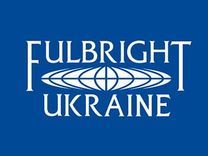
HOW TO PUBLISH IN INTERNATIONAL PEER-REVIEWED PUBLICATIONS
It was on this topic that on April 4, 2016, the Ministry of Education and Science of Ukraine organized a training for scientific and pedagogical, research workers and postgraduate students, which was held at the Odessa National University named after I.I. Mechnikov. The training was conducted with the support of the Fulbright Program Office in Ukraine.
Members of the Association of Scientists and Specialists in the Field of Operational and Investigative Activities took an active part in the training.
At the beginning of the event, a representative of the Fulbright-Clinton Program, Alexis Ramos, made a welcoming speech, emphasizing the usefulness of this event for the professional development of each scientist. The latter emphasized the presence of representatives of the Ministry of Education and Science of Ukraine and the Department of Certification of Highly Qualified Personnel at the training.
A report on the topic "How and why is it necessary to publish in international publications?" was delivered by Fulbright Leadership and Empowerment Scholar Michelle Vasquez, who noted that in order for a scientific article to be published in a foreign journal, it must be original, innovative, based on sufficient research, and contain quality references to the literature. It is also very important to learn how to identify a quality foreign journal.
Separately, criticism of a scientific article was noted, which should be perceived as a normal phenomenon. “After all, people who criticize “care” about you. They point out your mistakes, by removing which you improve. Look for people who will criticize your scientific works,” the speaker emphasized. No less interesting was the report of the US Department employee Thaddeus McClearly “Academic Writing”.
First of all, he noted that plagiarism should be understood as any phrase, sentence that the author borrowed without referring to an official source. There are three types of plagiarism: 1) text rewritten word for word; 2) text rewritten partially, using your own words elsewhere; 3) text expressed in your own words, but the idea (concept) remains borrowed. Also, the speaker added that plagiarism includes the transfer of someone else’s idea, even if a few words are replaced or rearranged. The 10 reasons given in the report for not accepting a scientific article for an international peer-reviewed publication are worth noting:
1) the title of the article does not correspond to the content;
2) the purpose of the research remains unclear or is at odds with the research methods;
3) the research methods do not match the results obtained;
4) the presence of grammatical or lexical errors in the scientific article;
5) the text of the article is not presented in a scientific style;
6) there is a deviation from the subject of the research;
7) the data provided is outdated;
8) there is plagiarism;
9) the structure of the article is broken;
10) local research results do not have a logical connection with the final conclusions.
At the end of the report, Thaddeus McCleary defined an algorithm of actions before writing a scientific article, which consists of answers to the questions: “What do I know about this topic?”, “Why is this topic so important?”, “How to do it?”, “What research has already been conducted on this topic?”, “What results were obtained during the research on this topic?”. Regarding the equally important issue of translating a scientific article into a foreign language, the speaker noted the website https://lang-8.com/, with the help of which the author has the opportunity to write an article in a foreign language at any level of proficiency, send it to the specified site, where native speakers of the foreign language will correct errors for free and send the article back.
During the report “Roadmap to Publication and Maximizing Your Chances of Publication,” Fulbright graduate student Nathan Pickett pointed out some websites that will be useful for every scientist, namely https://www.h-net.org, http://www.lsoft.com/catalist.html (for searching for foreign journals), http://gen.lib.rus.ec (for searching for books), https://sci-hub.io (for searching for scientific articles), www.scimagojr.com/journalrank.php (for searching for a journal by field), http://www.journalmetrics.com (for searching for special journals), etc.
At the same time, the speaker focused in detail on the direct selection of an international peer-reviewed journal. Thus, Nathan Pickett provided the following advice on this matter:
1) get acquainted with a number of articles of the chosen journal over the past few years;
2) talk to colleagues, maybe some of them have already been published there;
3) review the journal articles and their citation index;
4) choose the style of writing the article, decide on the title;
5) determine the keywords and abstract for the article;
6) find out the relevance of the chosen topic;
7) take into account that a very large or very small volume is bad;
8) determine whether the structure of the article is understandable;
9) determine whether the sentences in the article are understandable;
10) use the “correct” sources, because many foreign editors, if they find plagiarism in the article, make a corresponding mark in the database. This also applies to the deadlines for submitting the article, so it is worth adhering to them. Also, the speaker added that it is not recommended to send the same article to the same foreign journal.
Tetyana Yaroshenko, President of the Ukrainian Alumni Association of the Fulbright Scholars Association, gave a presentation on "Scientific Communication," which she proposed to understand as "registration" of a new idea or research, "certification" of research quality, informing about research and its results (through publication in a scientific journal), and "archiving" research results for future access and use.
The speaker noted that today science is turning into a competition in terms of the number of publications, citations, and the growth of bibliometric indicators (Hirsch index, etc.). However, the questions “What areas of research are relevant?”, “Are we going to reinvent the wheel?”, “Who finances such research?”, “How to find fellow scientists?”, “What are the scientific journals in this field?”, “Which of these journals are the most influential?”, etc. remain open. The speaker called for finding answers to these and other questions using the most authoritative databases of scientific literature, which are equipped with tools for tracking and analyzing the citation rate of scientific works — Web of Science and Scopus. It is with the help of these scientometric databases that it is possible to identify leading journals, conferences in a specific narrow field, the strengths of the university, promising young scientists, and areas for establishing productive cooperation.
Today, as noted by Tetyana Yaroshenko, each scientist should also take care of his/her ID – a unique identifier of authors-scientists, which solves the problem of correct recognition of documents of a specific author. You can get an ID by registering on the website http://orcid.org. The speaker advised universities to develop their own scientific journals, which are indexed by the WoS and Scopus databases.
Continuing the topic “Scientific Communication”, Iryna Tikhonkova, Senior Researcher at the Institute of Molecular Biology and Genetics of the NAS of Ukraine, noted that publication in publications indexed by the WoS and Scopus databases gives the scientist a reputation, an increase in the readership, search for partners, grants, monetized bonuses from management. At the same time, the speaker emphasized that each scientist should have one profile in Scopus, a ResearcherID profile, a GoogleScholar profile, a researchgate.net profile, and an ORCID profile.
During her report, Iryna Tikhonkova also focused on the requirements for scientific journals. Thus, in her opinion, “quality” scientific journals cannot require two reviews for a scientific article, so reviews should be replaced with responses. Secondly, the editorial board of the journal should include at least one foreign scientist. Thirdly, a scientific journal will be indexed only when each article is posted separately on its website in pdf format.
At the end of the training, a general discussion took place among the participants of the event.
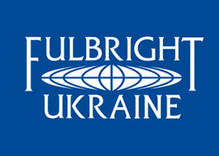
HOW TO PUBLISH IN INTERNATIONAL PEER-REVIEWED PUBLICATIONS
It was on this topic that on April 4, 2016, the Ministry of Education and Science of Ukraine organized a training for scientific and pedagogical, research workers and postgraduate students, which was held at the Odessa National University named after I.I. Mechnikov. The training was conducted with the support of the Fulbright Program Office in Ukraine.
Members of the Association of Scientists and Specialists in the Field of Operational and Investigative Activities took an active part in the training.
At the beginning of the event, a representative of the Fulbright-Clinton Program, Alexis Ramos, made a welcoming speech, emphasizing the usefulness of this event for the professional development of each scientist. The latter emphasized the presence of representatives of the Ministry of Education and Science of Ukraine and the Department of Certification of Highly Qualified Personnel at the training.
A report on the topic "How and why is it necessary to publish in international publications?" was delivered by Fulbright Leadership and Empowerment Scholar Michelle Vasquez, who noted that in order for a scientific article to be published in a foreign journal, it must be original, innovative, based on sufficient research, and contain quality references to the literature. It is also very important to learn how to identify a quality foreign journal.
Separately, criticism of a scientific article was noted, which should be perceived as a normal phenomenon. “After all, people who criticize “care” about you. They point out your mistakes, by removing which you improve. Look for people who will criticize your scientific works,” the speaker emphasized. No less interesting was the report of the US Department employee Thaddeus McClearly “Academic Writing”.
First of all, he noted that plagiarism should be understood as any phrase, sentence that the author borrowed without referring to an official source. There are three types of plagiarism: 1) text rewritten word for word; 2) text rewritten partially, using your own words elsewhere; 3) text expressed in your own words, but the idea (concept) remains borrowed. Also, the speaker added that plagiarism includes the transfer of someone else’s idea, even if a few words are replaced or rearranged. The 10 reasons given in the report for not accepting a scientific article for an international peer-reviewed publication are worth noting:
1) the title of the article does not correspond to the content;
2) the purpose of the research remains unclear or is at odds with the research methods;
3) the research methods do not match the results obtained;
4) the presence of grammatical or lexical errors in the scientific article;
5) the text of the article is not presented in a scientific style;
6) there is a deviation from the subject of the research;
7) the data provided is outdated;
8) there is plagiarism;
9) the structure of the article is broken;
10) local research results do not have a logical connection with the final conclusions.
At the end of the report, Thaddeus McCleary defined an algorithm of actions before writing a scientific article, which consists of answers to the questions: “What do I know about this topic?”, “Why is this topic so important?”, “How to do it?”, “What research has already been conducted on this topic?”, “What results were obtained during the research on this topic?”. Regarding the equally important issue of translating a scientific article into a foreign language, the speaker noted the website https://lang-8.com/, with the help of which the author has the opportunity to write an article in a foreign language at any level of proficiency, send it to the specified site, where native speakers of the foreign language will correct errors for free and send the article back.
During the report “Roadmap to Publication and Maximizing Your Chances of Publication,” Fulbright graduate student Nathan Pickett pointed out some websites that will be useful for every scientist, namely https://www.h-net.org, http://www.lsoft.com/catalist.html (for searching for foreign journals), http://gen.lib.rus.ec (for searching for books), https://sci-hub.io (for searching for scientific articles), www.scimagojr.com/journalrank.php (for searching for a journal by field), http://www.journalmetrics.com (for searching for special journals), etc.
At the same time, the speaker focused in detail on the direct selection of an international peer-reviewed journal. Thus, Nathan Pickett provided the following advice on this matter:
1) get acquainted with a number of articles of the chosen journal over the past few years;
2) talk to colleagues, maybe some of them have already been published there;
3) review the journal articles and their citation index;
4) choose the style of writing the article, decide on the title;
5) determine the keywords and abstract for the article;
6) find out the relevance of the chosen topic;
7) take into account that a very large or very small volume is bad;
8) determine whether the structure of the article is understandable;
9) determine whether the sentences in the article are understandable;
10) use the “correct” sources, because many foreign editors, if they find plagiarism in the article, make a corresponding mark in the database. This also applies to the deadlines for submitting the article, so it is worth adhering to them. Also, the speaker added that it is not recommended to send the same article to the same foreign journal.
Tetyana Yaroshenko, President of the Ukrainian Alumni Association of the Fulbright Scholars Association, gave a presentation on “Scientific Communication,” under which she proposed to understand the “registration” of a new idea or research, “certification” of the quality of research, informing about the research and its results (through publication in a scientific journal), “archiving” of research results for future access and use.
The speaker noted that today science is turning into a competition in the number of publications, citations, and the growth of bibliometric indicators (Hirsch index, etc.). However, the questions “What areas of research are relevant?”, “Are we going to reinvent the wheel?”, “Who finances such research?”, “How to find fellow scientists?”, “What are the scientific journals in this field?”, “Which of these journals are the most influential?”, etc. remain open. The speaker called for finding answers to these and other questions using the most authoritative databases of scientific literature, equipped with tools for tracking and analyzing the citation rate of scientific works - Web of Science and Scopus. It is with the help of these scientometric databases that it is possible to identify leading journals, conferences in a specific narrow field, the strengths of the university, promising young scientists, and areas for establishing productive cooperation.
Today, as Tetyana Yaroshenko noted, each scientist should also take care of his or her ID - a unique identifier of scientific authors, which solves the problem of correctly recognizing documents of a specific author. You can get an ID by registering on the website http://orcid.org. The speaker advised universities to develop their own scientific journals, which are indexed by the WoS and Scopus databases.
At the end of the report, Thaddeus McCleary defined an algorithm of actions before writing a scientific article, which consists of answers to the questions: "What do I know about this topic?", "Why is this topic so important?", "How to do it?", "What research has already been conducted on this topic?", "What results were obtained during the research on this topic?". Regarding the equally important issue of translating a scientific article into a foreign language, the speaker noted the website https://lang-8.com/, with the help of which the author has the opportunity to write an article in a foreign language at any level of proficiency, send it to the specified site, where native speakers of the foreign language will correct errors for free and send the article back.
During the report “Roadmap to Publication and Maximizing Your Chances of Publication,” Fulbright graduate student Nathan Pickett pointed out some websites that will be useful for every scientist, namely https://www.h-net.org, http://www.lsoft.com/catalist.html (for searching for foreign journals), http://gen.lib.rus.ec (for searching for books), https://sci-hub.io (for searching for scientific articles), www.scimagojr.com/journalrank.php (for searching for a journal by field), http://www.journalmetrics.com (for searching for special journals), etc.
At the same time, the speaker focused in detail on the direct selection of an international peer-reviewed journal. Thus, Nathan Pickett provided the following advice on this matter:
1) get acquainted with a number of articles of the chosen journal over the past few years;
2) talk to colleagues, maybe some of them have already been published there;
3) review the journal articles and their citation index;
4) choose the style of writing the article, decide on the title;
5) determine the keywords and abstract for the article;
6) find out the relevance of the chosen topic;
7) take into account that a very large or very small volume is bad;
8) determine whether the structure of the article is understandable;
9) determine whether the sentences in the article are understandable;
10) use the “correct” sources, because many foreign editors, if they find plagiarism in the article, make a corresponding mark in the database. This also applies to the deadlines for submitting the article, so it is worth adhering to them. Also, the speaker added that it is not recommended to send the same article to the same foreign journal.
Tetyana Yaroshenko, President of the Ukrainian Alumni Association of the Fulbright Scholars Association, gave a presentation on "Scientific Communication," under which she proposed to understand the "registration" of a new idea or research, "certification" of the quality of research, informing about the research and its results (through publication in a scientific journal), "archiving" of research results for future access and use.
The speaker noted that today science is turning into a competition in the number of publications, citations, and the growth of bibliometric indicators (Hirsch index, etc.). However, the questions "What areas of research are relevant?", "Are we going to reinvent the wheel?", "Who finances such research?", "How to find fellow scientists?", "What are the scientific journals in this field?", "Which of these journals are the most influential?", etc. remain open. The speaker called for finding answers to these and other questions using the most authoritative databases of scientific literature, equipped with tools for tracking and analyzing the citation rate of scientific works - Web of Science and Scopus. It is with the help of these scientometric databases that it is possible to identify leading journals, conferences in a specific narrow field, the strengths of the university, promising young scientists, and areas for establishing productive cooperation.
Today, as Tetyana Yaroshenko noted, each scientist should also take care of his or her ID - a unique identifier of scientific authors, which solves the problem of correctly recognizing documents of a specific author. You can get an ID by registering on the website http://orcid.org. The speaker advised universities to develop their own scientific journals, which are indexed by the WoS and Scopus databases.
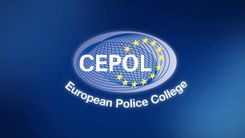
COOPERATION WITH THE EUROPEAN POLICE COLLEGE (CEPOL)
The Odessa State University of Internal Affairs hosted a ceremony to award certificates to members of the Association of European Police Exchange Programme under the auspices of the European Police College (CEPOL).
Thus, from 12 to 17 July 2015, Candidate of Law, Associate Professor, Police Lieutenant Colonel Andriy Kholostenko visited Riga (Republic of Latvia) to take part in a meeting dedicated to “External Manifestations in the Areas of Freedom, Security and Justice”. The programme of this event included a bilateral exchange of senior police officers, experts, police instructors, scientists, representatives of other law enforcement agencies and officials from potential candidate countries and Eastern Partner countries.
During the official visit, the work of law enforcement agencies of European countries, investigation of criminal cases, specifics of detecting corruption crimes, as well as the results of foreign scientific research in the field of anti-corruption activities were familiarized with.
During the celebrations, the Deputy Chairman of the Association, Candidate of Law, Associate Professor, Police Colonel Serhiy Albul expressed hope for continued close cooperation with the European Police College (CEPOL) in the future.
